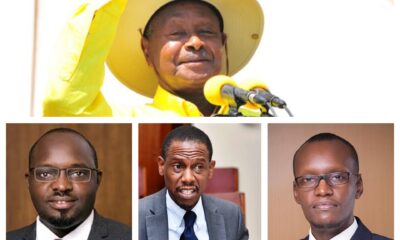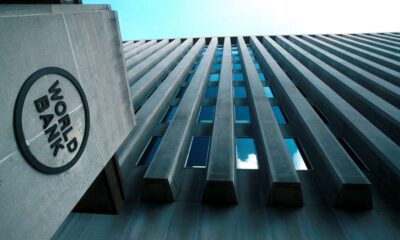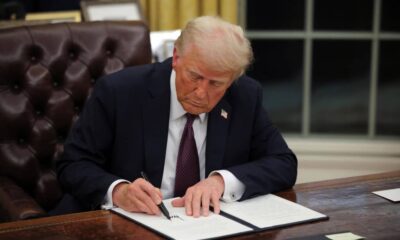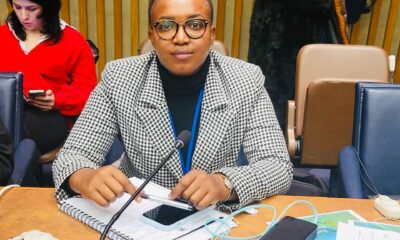Published
4 months agoon
By
Ugdiplomat
The United States Department of the Treasury’s Office of Foreign Assets Control (OFAC) has announced new sanctions targeting James Kabarebe, Rwanda’s Minister of State for Regional Integration, for his alleged role in supporting the March 23 Movement (M23), a U.S.- and United Nations-designated armed group responsible for human rights abuses in the eastern Democratic Republic of the Congo (DRC). The sanctions also extend to M23 spokesperson Lawrence Kanyuka Kingston and two of his businesses registered in the United Kingdom and France.
Rwandan Minister Accused of Orchestrating M23 Support
James Kabarebe, a former general in the Rwanda Defense Force (RDF), has been accused of orchestrating RDF support for M23 while managing illicit mineral extraction operations in the DRC. According to the Treasury Department, Kabarebe has been instrumental in exporting DRC-mined minerals through Rwanda, generating revenue for both the armed group and the Rwandan government.
“Kabarebe is central to the destabilization of the eastern DRC and has played a key role in sustaining the conflict through resource exploitation,” said Acting Under Secretary of the Treasury for Terrorism and Financial Intelligence Bradley T. Smith. “Today’s action underscores our commitment to holding accountable those fueling violence in the region.”
Kabarebe’s designation falls under Executive Order 13413, which authorizes sanctions on individuals and entities engaged in activities that threaten the stability of the DRC.
M23’s Expanding Influence and Human Rights Violations
M23, a Rwanda-backed armed group, has rapidly expanded its territorial control in the eastern DRC. The group, which was initially defeated in 2013, resurfaced in late 2021 with RDF support. In late January 2025, M23 and RDF forces captured Goma, the capital of North Kivu province, in a battle that resulted in the deaths of thousands of civilians. The group has since seized Kavumu Airport and taken control of Bukavu, the provincial capital of South Kivu province.
M23 has been accused of mass human rights violations, including killings, sexual violence, and forced displacement of civilians. The group’s occupation of Rubaya, a significant mining hub for critical minerals, has further exacerbated tensions in the region. In response, the U.S. State Department issued a statement in July 2024 highlighting the role of illicit mineral supply chains in perpetuating instability in eastern DRC.
Sanctions on M23’s Spokesperson and Business Interests
In addition to Kabarebe, OFAC has sanctioned Lawrence Kanyuka Kingston, M23’s civilian spokesperson and a public relations officer for the Congo River Alliance, a coalition of rebel groups seeking to overthrow the DRC government. Kanyuka is accused of spearheading M23’s media and diplomatic efforts while running businesses that allegedly finance rebel activities.
Kanyuka owns Kingston Fresh LTD, a UK-registered food services company, and Kingston Holding, a mining consultancy based in France. Both companies have been sanctioned under E.O. 13413 for being owned or controlled by Kanyuka.
Sanctions Implications
As a result of these sanctions, all property and financial assets of the designated individuals and entities in the United States are now blocked. U.S. persons and entities are prohibited from engaging in transactions with them. Any violations could result in severe civil or criminal penalties. Financial institutions worldwide have also been warned about potential exposure to secondary sanctions if they engage in transactions with the sanctioned individuals or their businesses.
OFAC emphasized that while the primary aim of these sanctions is accountability, there remains a pathway for removal from the Specially Designated Nationals (SDN) List should individuals demonstrate compliance with international regulations and cease destabilizing activities.
This latest action by the U.S. underscores growing international scrutiny over Rwanda’s involvement in the DRC conflict and signals Washington’s intent to disrupt financial networks fueling armed groups in the region.


Court Dustbins NRM Leadership Petition as Namyalo Applauds Museveni Legal Team


Jeje, Venezuela’s Pinto Talk Areas Of Mutual Cooperation Ahead of First Joint Commission


World Bank Coils Tail, Ends Loans Ban On Uganda Over Gay Law


Venezuelan Envoy Pledges Closer Ties In Meeting With Minister Oryem


AU Condemns U.S. Travel Ban Affecting African Nations


Kiconco Brenda Launches Bid for NRM Youth League Boss: “This Is Our Voice”
